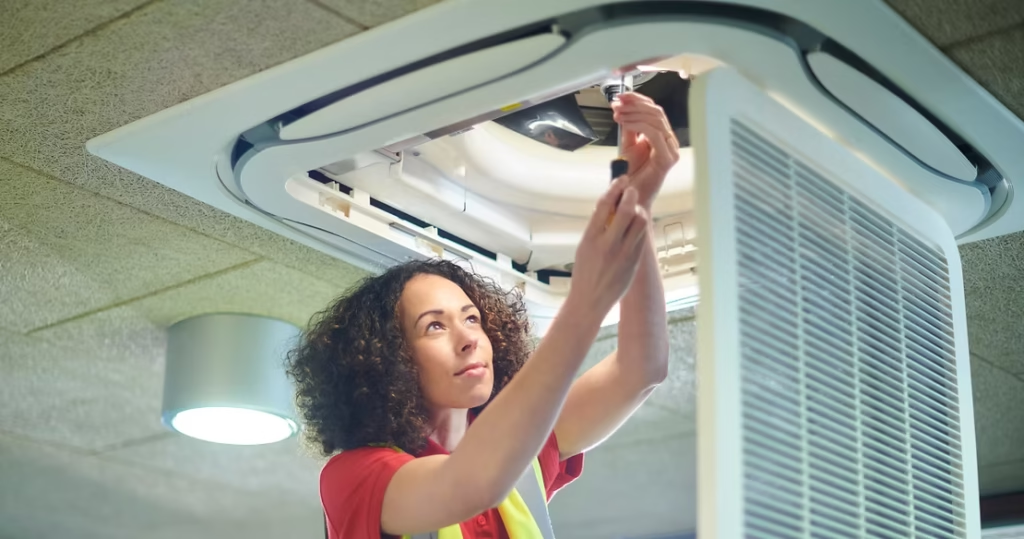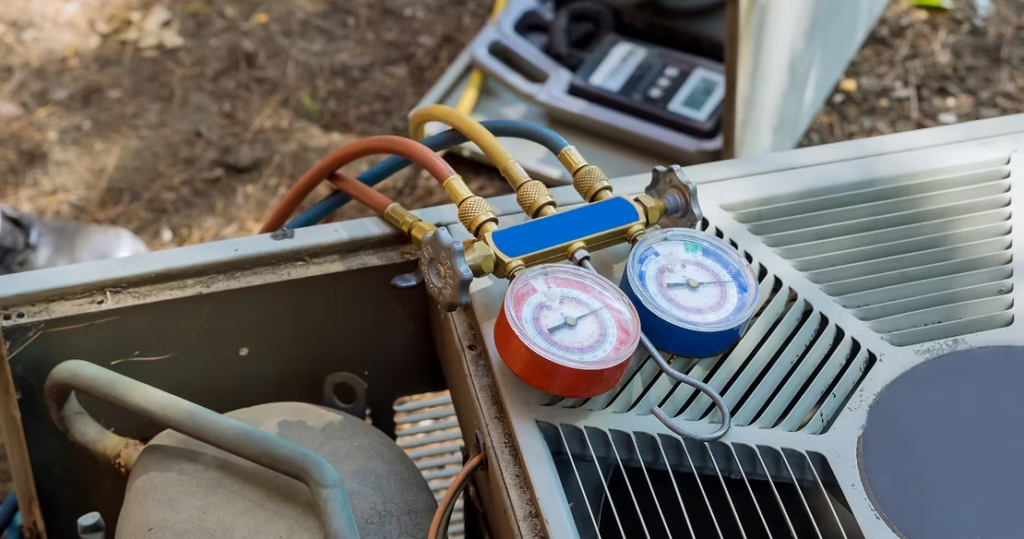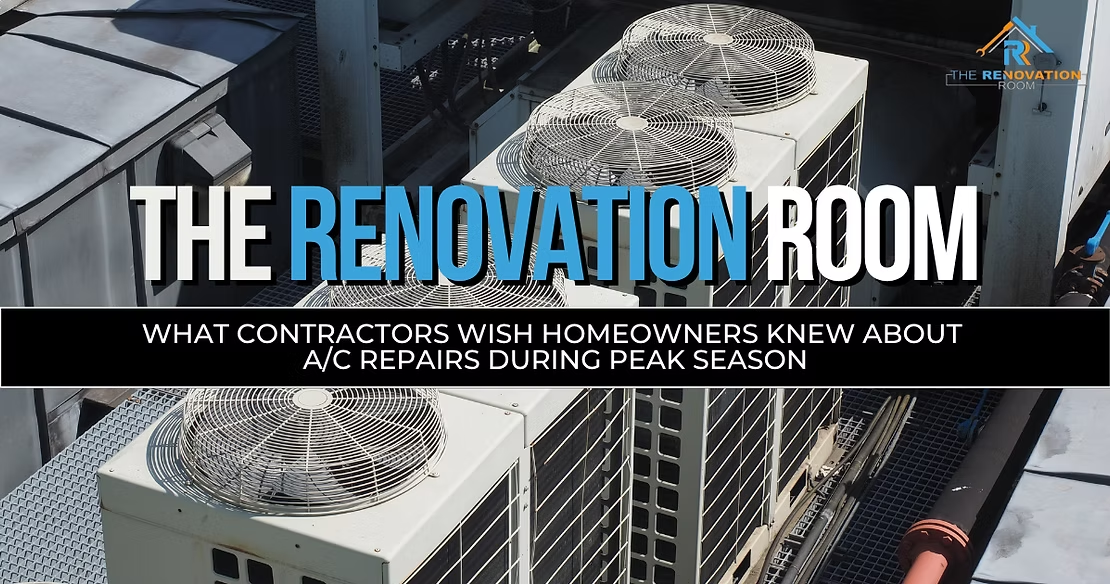Key Highlights
- HVAC teams get flooded with calls and work overtime, often with limited parts and staff.
- Just because it’s urgent doesn’t mean it can be fixed right away.
- Many problems that arise in summer could have been prevented with spring checkups.
- When homeowners understand scheduling limits and repair timelines, they’re more patient and prepared.
- Attempting quick fixes often makes professional repair more complicated later.
- You get what you pay for—especially when demand is high.
Introduction
Summer hits, temperatures rise, and suddenly everyone remembers their air conditioning. For HVAC contractors, this means long days, jam-packed schedules, and a flood of emergency calls. What many homeowners don’t see is the behind-the-scenes stress and complexity that come with this seasonal rush. The truth is, peak season is chaotic and small misunderstandings or unrealistic expectations can make things harder for everyone.
This blog is for contractors who’ve felt the heat in more ways than one. It’s also a resource you can share with your clients to help them understand what’s really going on when their A/C breaks down in July. By shedding light on the process, we can build better communication, smoother jobs, and a little less frustration on both sides.
Peak Season Means Full Calendars and Long Waits

Every summer, it’s the same story. First heatwave hits, and suddenly the phone doesn’t stop ringing. HVAC companies, from big outfits to one-man operations, are juggling dozens—sometimes hundreds of service requests a week.
Homeowners often think they’re the only ones calling. They don’t see the spreadsheet full of addresses, the voicemails piling up, or the texts coming in every five minutes. When someone’s A/C breaks down in 95°F weather, it feels like an emergency and it is. But they’re not the only ones sweating it out.
Contractors are stretched thin. Between trying to get to as many homes as possible, dealing with parts delays, and keeping staff healthy and safe, it’s a juggling act. Even with a full crew, it’s often impossible to get to everyone the same day they call.
What helps? Patience and planning. If homeowners understand the pressure contractors are under, they’re more likely to accept a realistic timeframe. Booking regular maintenance before summer hits is the best way to avoid emergency breakdowns. But when those emergencies do happen, a little grace goes a long way.
Emergency Doesn’t Always Mean Immediate

When your A/C stops working in the middle of July, it feels like an emergency and to be fair, sometimes it is. For elderly folks, families with infants, or anyone with health conditions, no air conditioning can be dangerous. But even in those situations, there’s often a misunderstanding:
- Urgent doesn’t mean instant. Contractors don’t have magic wands. If a part is needed and it’s out of stock or if three other jobs are already in line, there’s only so much that can be done.
- Emergency calls take longer and cost more. Jumping the queue often means canceling another job or working into the night. That kind of service comes at a premium, and not all homeowners are ready for that conversation.
- Contractors wish homeowners knew that “emergency” doesn’t guarantee speed. It means we’ll do what we can, as fast as we can but there are limits. Often, a temporary fix (like a portable unit) is the best option until a full repair is possible.
The takeaway? Educating clients on what “emergency repair” really means—and what it doesn’t—can prevent a lot of tension.
Most Summer Breakdowns Could Have Been Prevented

This is a hard truth contractors know well: Most peak season calls could have been avoided with spring maintenance. But every year, the same pattern repeats. Units go untouched all winter, ignored all spring, and then asked to work at full blast come summer.
Clogged filters, dirty coils, and low refrigerant are the top three culprits—and all are preventable. When these things go unchecked, systems work harder, parts wear out faster, and breakdowns become inevitable.
Homeowners often don’t understand how A/C systems age. Unlike a lightbulb that just stops working, air conditioners usually fail slowly, building up problems over months or years. By the time it quits, there were probably warning signs.
Annual tune-ups make a massive difference. They keep systems efficient, reduce long-term repair costs, and help contractors catch small issues before they become big ones. Contractors wish their clients would stop thinking of maintenance as optional. It’s not a luxury—it’s a necessity, especially in areas with hot, humid summers. Getting that message across can save everyone time, stress, and money.
Communication Is Everything During Busy Season
When you’ve got five jobs lined up and three voicemails waiting, clear communication isn’t just nice, it’s essential. Misunderstandings can lead to frustration fast. If a homeowner expects a tech to arrive at 10 AM sharp and the schedule shifts, tensions rise. If they don’t understand why a repair will take days, they start looking for someone else. A little heads-up goes a long way.
Setting realistic expectations is part of the job. It helps to be upfront: “We can come out Wednesday, but parts won’t be in until Friday.” Most reasonable homeowners will appreciate the honesty, even if they don’t like the wait. Written confirmations help. Texts, emails, or job notes are gold during peak season. They keep everyone on the same page and cut down on confusion.
Contractors aren’t just fixing A/C units—they’re managing emotions. When people are hot, uncomfortable, or worried, it’s easy for tensions to boil over. Staying calm, being clear, and showing empathy can keep a job from turning into a conflict.
DIY Fixes Often Make the Problem Worse
Desperate homeowners do desperate things. In peak summer, contractors see it all:
Coils sprayed with garden hoses. Thermostats rewired. Refrigerant cans bought off Amazon. It’s usually well-intentioned but it often makes the problem worse.
A/C systems are more complex than they seem. What looks like a clogged drain might actually be a refrigerant leak. What seems like a frozen coil might be tied to airflow issues or electrical faults. DIY mistakes can turn a small repair into a full system replacement. We’ve seen homeowners bend fins, damage sensors, void warranties, and blow fuses—all trying to “help.”
Contractors wish homeowners would wait. If your car’s making a weird noise, you don’t start pulling parts off the engine. The same should apply to HVAC systems. Unless you’re changing the filter or clearing visible debris, hands off.
Educating clients on what’s safe (and what’s not) can save them a fortune—and make your job easier when you do get there.
Good Contractors Are Worth Waiting For

It’s tempting, during a heatwave, to call the first name on Google who says they’re available. But fast doesn’t always mean good. There’s a reason quality contractors book up. They’re in demand because they know their stuff, they don’t cut corners, and they treat clients with respect. That means they’re busy—especially in July.
Cut-rate contractors often cost more in the long run. Maybe they misdiagnose the issue. Maybe they use off-brand parts. Maybe they don’t stand by their work. In any case, homeowners can end up paying twice—once for the quick fix, and again to fix the fix. Contractors wish homeowners understood the value of experience. A well-trained, certified tech might cost more upfront—but they’ll get it right the first time.
It’s okay to ask questions, get references, or check licenses. That helps separate the pros from the posers. And it helps build trust, which is key in any service industry.
Where Homeowners and Contractors Connect: The Renovation Room

If you’re looking for a place where contractors and homeowners can talk openly, ask questions, share advice, or just vent about the ups and downs of home renovation, The Renovation Room is where it’s happening.
With over 38,000 members and growing, our Facebook Group has become one of the most active spaces for real conversations about construction, repairs, and home improvement. It’s not a place for spam or sales pitches. It’s a place for real people, contractors, tradespeople, homeowners, and DIYers sharing real experiences.
Contractors use the group to:
- Share job site stories (the good, bad, and wild)
- Answer homeowner questions and offer guidance
- Stay connected with others in the industry
- Promote better understanding of how we work and why
Homeowners benefit too. They get to see how much goes into skilled trade work, and they get honest, no-nonsense answers from professionals—often before they even book a job. And if you’re looking for something more structured, TheRenovation Room website features resources, blog posts, checklists, and tips that go deeper into what it takes to run a project well whether you’re building from scratch or just trying to keep your A/C alive in August.
It’s more than a group—it’s a community. One that helps bridge the gap between contractors and clients, with trust and transparency at the center.
Conclusion
Peak A/C season is a pressure cooker. Contractors are racing the clock, homeowners are desperate for relief, and small misunderstandings can lead to big headaches. But a little education goes a long way. When homeowners understand what’s really happening behind the scenes—how tight scheduling gets, how critical maintenance is, and how much work goes into quality repairs—they’re more likely to be patient, cooperative, and loyal customers.
If you’re a contractor, don’t assume your clients know all this. Share it. Talk about it. Use this blog if it helps. The more people understand what goes into A/C repairs during peak season, the smoother the job gets for everyone.
Frequently Asked Questions (FAQs)
Q: Why does it take days to get my A/C repaired in summer?A: Summer is peak season, and most HVAC teams are fully booked. Parts might be backordered, and technicians are juggling multiple urgent calls. It’s not about ignoring you—it’s about handling a flood of work all at once.
Q: Is emergency service really more expensive?A: Yes. Emergency calls often require rescheduling other clients, overtime work, and premium parts. That added cost reflects the added strain on the contractor’s resources.
Q: What maintenance should I do before summer?A: Have a professional do a spring tune-up. Change your filters, clear debris from outdoor units, and make sure the thermostat is working properly. Catching problems early can prevent breakdowns.
Q: Can I fix anything myself?A: You can change the filter and clear obvious debris. Beyond that, it’s best to call a pro. DIY repairs often make the problem worse and can void your warranty.
Q: How do I choose a reliable A/C contractor?A: Look for licensed, insured professionals with good reviews. Ask about experience, guarantees, and whether they do in-depth diagnostics before recommending repairs or replacements.



